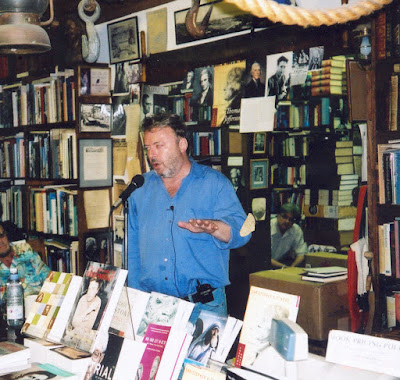The only thing I remember regarding the rhyme and reason of all this hustle and bustle were about the Kremlin blowing up, a rogue nuclear scientist/philosopher in possession of Russian missile codes, and the occasional speech from the same about how nuclear catastrophe has become part of the natural evolution of existence; complete devastation is needed for the planet to start new life from the burning cinders. It would have been a clever and intriguing investigation to see the peace-on-earth paradigm reversal explored more thoroughly and cleverly, but that is a matter for another movie, a better script and a director who can balance brains with action. As is, though, this a fine series of brilliantly orchestrated action sequences, one unbelievable scenario, whether prowling through the bowels of the Kremlin, climbing up the side of the tallest building in the world in Dubai, or desperately trying to get the metal suitcase containing the said codes while combating the villain in a robotic parking garage in India. I enjoyed it as pure spectacle, at the sacrifice of losing all impression of the film once the auditorium lights went on.
There was a lasting image, though, that of the ever youthful Cruise looking his age; at 47 years old, the star remains fit, but there the evidence of the sort of body transformation that comes with increased years. The chest muscles sag, the gut isn't the toned washboard it used to be, one detects a hint of loose skin under the biceps that were formerly tight as drum heads. I mention only because Cruise wore wife beaters during the prison sequence when he first entered the film. This is the sort of extreme form fitting shirt that can flatter a physique that is fit and muscular in classical terms, or which can belie the wear, tear and aging a body has undergone.It was not flattering. Perhaps he thought no one would notice.
There was a lasting image, though, that of the ever youthful Cruise looking his age; at 47 years old, the star remains fit, but there the evidence of the sort of body transformation that comes with increased years. The chest muscles sag, the gut isn't the toned washboard it used to be, one detects a hint of loose skin under the biceps that were formerly tight as drum heads. I mention only because Cruise wore wife beaters during the prison sequence when he first entered the film. This is the sort of extreme form fitting shirt that can flatter a physique that is fit and muscular in classical terms, or which can belie the wear, tear and aging a body has undergone.It was not flattering. Perhaps he thought no one would notice.
Tom Cruise remains what he has always been in his action films, a five foot something windup toy that springs into frenetic, limb-splitting contortions when the director blows his whistle. I liked it for the action set pieces, which were spectacular
and truly awesome. The problem, though, is one that no can simply ignore, that that
entire glorious spectacle is in service to making an aging narcissist look
vital and youthful. Bruce Willis is more appealing as an aging action hero,
especially in the Die Hard movies, because he feels pain, expresses trepidation
as he goes into action, and is obviously tired, haggard and operating on
reserves that are near depletion. Cruise wants to suggest that his energy is
boundless, without end, and this becomes sad, very sad after a point. Even the
flashiest editing and loudest car crash can't distract you from that. This movie was enjoyable as pure light show, a shadow play performed against white bedroom linen. It was, be assured, monumentally idiotic.




